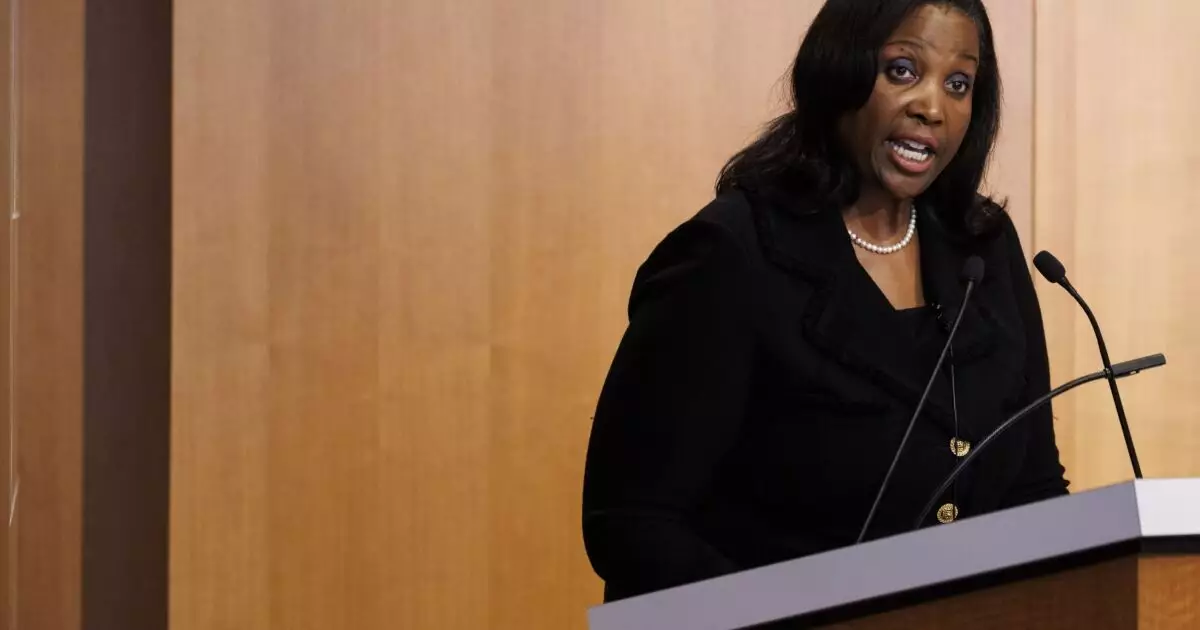In recent weeks, the United States has witnessed an alarming trend: political figures leveraging personal and partisan disputes to undermine the independence of the Federal Reserve. The spectacle of President Donald Trump explicitly threatening to fire Federal Reserve Governor Lisa Cook over allegations of mortgage misrepresentation exemplifies a dangerous pattern. While critics may argue that public scrutiny is necessary for accountability, the manner in which political leaders are meddling in an institution designed to operate above politics is profoundly concerning. Central banks are most effective when they remain insulated from political pressures; otherwise, they risk succumbing to populist demand, undermining monetary stability and long-term economic health.
This pattern of intervention isn’t new in history, but the current administration’s approach signals a troubling shift. By openly condoning or even encouraging the removal of independent officials based on political disagreements or personal investigations, the boundaries that safeguard the Fed’s neutrality are being deliberately blurred. Such actions threaten to politicize crucial economic decisions—especially interest rate adjustments—jeopardizing the stability of markets, inflation control, and financial security for millions of Americans.
The Blurred Lines Between Justice and Politics in Federal Appointments
The case against Lisa Cook appears less about actual misconduct and more about political leverage. Cook, appointed by a Democratic president, finds herself targeted amid a broader context of partisan conflicts. Accusations of mortgage fraud—whether validated or not—are being weaponized to challenge her credibility, and by extension, the Federal Reserve’s credibility. This reflects a troubling tendency to assume guilt before due process, especially when the charges are framed amidst partisan battles.
Moreover, Trump’s willingness to publicly threaten her employment—despite the Fed’s statutory protections—exposes a weak understanding or outright disregard for the independence enshrined in law. Federal Reserve governors serve staggered 14-year terms, designed precisely to prevent political retribution. Congress explicitly modeled their removal for “cause,” not political inconvenience. Yet, the current administration, emboldened by an ideological approach to executive power, seems intent on eroding these protections, threatening to turn the Fed into a political pawn rather than a neutral arbiter of monetary policy.
The Implications of Politicizing the Fed: Risks to the Economy
The broader implications of compressing the independence of the Federal Reserve are dire. The primary risk lies in undermining the institution’s credibility, which can erode investor confidence and destabilize markets. When the Fed’s decisions are seen as politically motivated, their effectiveness diminishes, leading to potential inflation spikes, volatile interest rates, and reduced capacity to respond to economic crises.
Furthermore, political pressure for lower interest rates—echoed by Trump’s repeated demands—jeopardizes long-term financial stability. While short-term relief might be gained, the neglect of prudent monetary normalization or tightening can fuel inflation, asset bubbles, and economic imbalances. Central banks must rely on data-driven, nonpartisan analysis; otherwise, their policies become hostage to political whims, eventually harming the very citizens they are meant to serve.
Historical Lessons and the Peril of Unchecked Presidential Power
The historical context around Fed independence underscores the risks of politicization. The Supreme Court’s ruling in Humphrey’s Executor v. United States reinforced that independent agency members cannot be dismissed for political reasons, emphasizing the importance of insulation from executive overreach. However, the current trajectory suggests a deliberate dismantling of such safeguards, primarily through the lens of the unitary executive theory—an interpretation advocating for concentrated presidential authority over federal agencies.
This approach increases the danger of unchecked executive power, setting a precedent that agencies like the Federal Reserve are subordinate to political interests rather than pillars of economic stability. The potential for future presidents to routinely dismiss or pressure Fed officials on political grounds could fundamentally weaken the institution, leading to a cycle of instability and diminished trust in government institutions.
The Central Bank as a Pillar of Responsible Governance
The Federal Reserve’s primary role is to safeguard monetary stability and foster sustainable economic growth, objectives that require independence and nonpartisan judgment. Attempts to politicize or threaten its officials threaten to blur this crucial boundary, risking policy decisions driven more by ideological considerations than economic realities.
A healthy democracy depends on the separation of powers and the autonomy of institutions like the Federal Reserve. When political actors abandon this principle, they risk spinning the wheels of economic stability into chaos. It is imperative to recognize that the long-term health of our economy hinges on the respect for institutional independence, not political expediency. As history has shown, the politicization of monetary policy yields not just market volatility but profound damage to the economic foundations of the nation.

